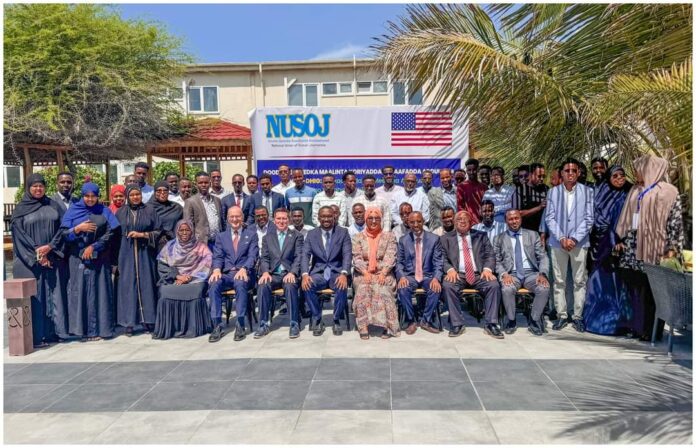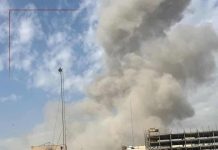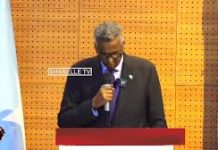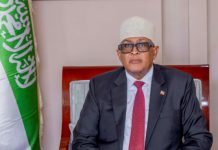Mogadishu, Somalia – 4 May 2024: The National Union of Somali Journalists (NUSOJ), in partnership with the U.S. Embassy Mogadishu successfully hosted the World Press Freedom Day Symposium on 2-3 May 2024 in Mogadishu, under the theme “A Press for the Planet: Journalism in the Face of the Environmental Crisis,” highlighting the crucial role of journalism in navigating and addressing the environmental challenges confronting Somalia and its people.
This year’s symposium, aligning with UNESCO’s global theme to nationally mark World Press Freedom Day, brought together over 60 influential figures from media, civil society, government and international partners. The two-day meeting served as a crucial platform for discussing the urgent environmental issues threatening Somalia’s ecosystems, economy and communities, with a particular focus on the vital role of robust journalism and press freedom in driving societal and policy changes.
Reflecting the significance of this year’s theme, the symposium was honoured with the presence of chief guests at the opening: the Minister of Environment and Climate Change, H.E. Ambassador Khadija Mohamed Al-Makhzoumi and the Minister of Education, Culture and Higher Education, H.E. Farah Sheikh Abdulkadir. The event culminated on the second day with the Minister of Information and Tourism, H.E. Daud Aweis Jama, receiving the outcomes of the deliberations and officially declaring the symposium closed.
On day one, engaging panel discussions emphasized the necessity of a conducive press freedom environment, vital for empowering journalism to raise awareness of climate change issues, featuring representatives from the media, civil society, USAID and the UNSOM Human Rights Group. These presentations and interactive discussions explored the challenges and opportunities in climate change reporting, aimed at establishing a robust climate narrative and discussed how journalism can drive just transition measures to secure fair, equitable and sustainable solutions. Furthermore, speakers showcased innovative reporting techniques that enhance public understanding and actively contribute to the development and refinement of policies.
“We have convened here to honor World Press Freedom Day, a crucial event in our calendar and to partake in forthright, insightful discussions on press freedom, professional challenges and the pressing climate calamities as well as environmental crises we face. Journalism undeniably stands as a formidable force for raising awareness, fostering adaptation and driving mitigation efforts,” added Osman.












